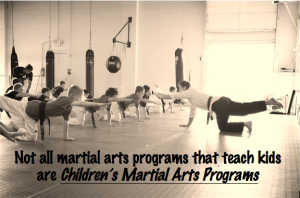 This is a common refrain. Folks are doing well "all year" but then they get to the holiday season and "everything" falls apart and they gain a bunch of weight or diverge greatly from their regular eating regimen.
This is a common refrain. Folks are doing well "all year" but then they get to the holiday season and "everything" falls apart and they gain a bunch of weight or diverge greatly from their regular eating regimen.
First, how do we know, I mean really know, that we were doing well all year in the first place. We need some sort of objective measure of success, before we can decide that we've failed. Did you keep a training log? Did you keep a food log? If you answered yes to even one of those questions then you are already way ahead of most of the population.
If you answer no (that's OK), step 1 is to start journaling. Journalling is a tremendously beneficial habit to keep, and food logging is an easy way to get started with the process. We've got about a week until thanksgiving. So, what do things look like in terms of your food intake when things are "normal"? Now, before getting all bent about the holidays, what does your normal look like? Is it really all that good?
I don't mean to be harsh, but are the holidays really the problem, or are they a scapegoat for a lack of discipline that really occurs 12 months a year? Frankly, we're talking about a few get togethers over the span of about a month and half. Can that really ruin you? I don't think so.
Ok, now recognize that we can't make drastic changes all at once. It's almost impossible to be successful. Diet and exercise are very similar. Both should be considered processes and not events. And both should be approached with this mind set: I want to be challenged as much as possible where I can still be successful. Failure is not an option. Not because we are macho, but we are realistic and good at planning.
My favorite example is waking up early. Assume, for some reason, you need to wake up earlier every day. Maybe you need to get to a new job, you want to work out in the mornings or you just want some additional time in the day. If you all of a sudden try to wake up 1 or 2 hours earlier every day, it will be very difficult. You might be successful at first, but soon enough you will dread the buzz of your smart phone in the morning.
Alternatively, think about incrementally changing your behavior. Do try to get from A to Z, just get from A to B. For example, set your alarm just 5 or 10 minutes earlier. That's very doable right? Then incrementally work your way up to an hour. Before you know it, you will be waking up an hour earlier without the use of an alarm clock.
How can we apply this to exercise?
1. Take a simple movement, that you need little or no equipment for. The bodyweight push up and the two handed russian kettlebell swing immediately come to mind. (If you haven't learnt the two hand swing, please learn the proper form first!)
2. Use our alarm clock example, just give me five minutes every day. Everyday, and I mean every day, you are going to dedicate just 5 minutes to doing pushups or kettlebell swings. Not both, just one or the other. Not more than 5 minutes. "But I can do more than that". Great, you may work out already, but do you do it 365 days a year? No. And nor should you. 5 minutes a day, no more, no less.
3. Depending on your current fitness level pick a number of reps. Something like 5-10 pushups or 15-20 kettlebell swings would likely be appropriate for most; however, lower numbers are good too. All you have to do is one set one the minute, every minute. So: Minute one --> 10 pushups, Minute 2 --> 10 pushups, Minute 3 --> 10 pushups, Minute 4 --> 10 pushups, Minute 5 --> 10 pushups. That is all.
Easy right? Too easy? Perhaps, but that is not consequential. The important thing is the habit. Are we developing the habit of doing pushups? No, not exactly, we are developing the habit of consistency. Think about it, what would you accomplish if you followed this simple and easy to follow plan all year round? That's 18,250 pushups. When was the last year you did that much working out? Well, if you don't have a log, you just don't know. The number of pushups is not the important thing. The important thing is realizing that it is easier to be consistent and you can accomplish a lot by just doing something a little bit every day.
If you are interested more in this philosophy, there is a great book called "The Slight Edge"
How can we apply this to diet?
You can know by now that my philosophy on diet emphasizes that dieting is a process and not an event. If with exercise, we need to add a little something every day, then with diet we need to eliminate a little something every day. (Adding a little something works too). Really think about what you could eliminate from your daily intake and how would you be better off for it. Here are some suggestions
1. Alcohol
2. Sodas and Store bought juices
3. Cream and sugar in your coffee
4. Breakfast
5. Lunch (only after you've eliminated breakfast :-))
6. Dinner
7. Snacking
These are all pretty straight forward. The liquid calories is an easy example. Do you always have a soda with lunch (I don't care if it's diet or "zero" it's still a soda). Could you drink water instead? This alone will make a big difference.
Let's talk about breakfast. Can you skip it? Sure, that's easy. Can you skip it without snacking before lunch? Ah, not so easy. How about gradually reducing the size of your breakfast until it all but disappears? What's left - Coffee or tea.
Every time you want to snack have a cup of green tea (or some caffeine free type tea) or a glass of water.
This are just some simple examples. But if you can get into better habits year round, and remember that habit forming is a skill that needs to be developed and practiced, you can enjoy your self during the holiday season.
Cheers,
Somnath Sikdar

